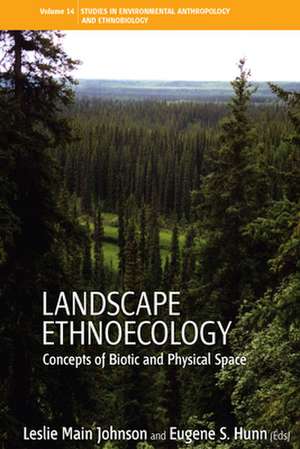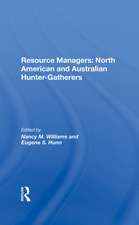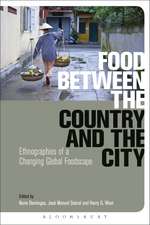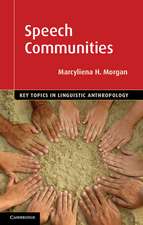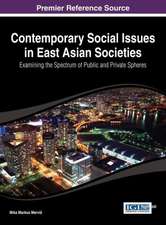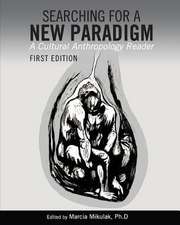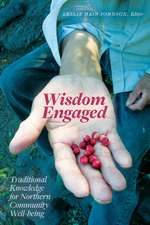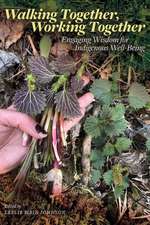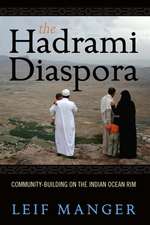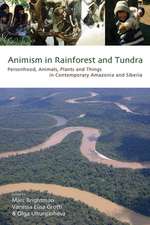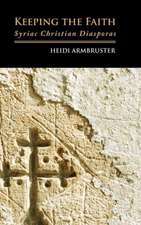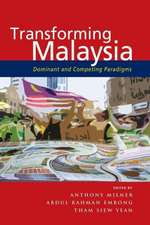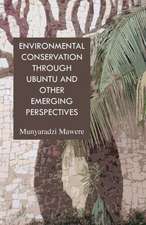Landscape Ethnoecology: Environmental Anthropology and Ethnobiology, cartea 9
Editat de Eugene S. Hunn, Leslie Main Johnsonen Limba Engleză Paperback – 31 ian 2012
This edited collection gives an important and thought provoking overview of recent debates and work united under the rubric of cultural landscape research. The eleven substantive case studies, taken primarily from indigenous societies across North and South America, each provide a strong argument for questioning or better specifying definitions on the meaning of place for various societies...a suggestive collection that I would recommend highly. Anthropos
Although anthropologists and cultural geographers have explored "place" in various senses, little cross-cultural examination of "kinds of place," or ecotopes, has been presented from an ethno-ecological perspective. In this volume, indigenous and local understandings of landscape are investigated in order to better understand how human communities relate to their terrestrial and aquatic resources. The contributors go beyond the traditional ecological knowledge (TEK) literature and offer valuable insights on ecology and on land and resources management, emphasizing the perception of landscape above the level of species and their folk classification. Focusing on the ways traditional people perceive and manage land and biotic resources within diverse regional and cultural settings, the contributors address theoretical issues and present case studies from North America, Mexico, Amazonia, tropical Asia, Africa and Europe.
Leslie Main Johnson is Associate Professor in the Centre for Social Science, Athabasca University, Alberta, Canada. Her publications include Trails of Story, Traveller's Path: Reflections on Ethnoecology and Landscape (Athabasca University Press, 2010), chapters on landscape in Landscape and Language, Benjamins 2011 and Ethnobiology, Wiley 2011," and articles in Human Ecology, Journal of Ethnobiology, Ecology of Food and Nutrition, Journal of Ethnobiology and Ethnomedicine, and Botany.
Eugene S. Hunn is Professor Emeritus in the Department of Anthropology at the University of Washington, Seattle. His books include Tzeltal Folk Zoology: The Classification of Discontinuities in Nature (Academic Press, 1977), Resource Managers: North American and Australian Hunter-Gatherers, co-edited with N. M. Williams (Westview, 1981), Nch'i-Wána, 'The Big River': Mid-Columbia Indians and their Land (University of Washington Press, 1990), and A Zapotec Natural History: Trees, Herbs, and Flowers, Birds, Beasts, and Bugs in the Life of San Juan Gbëë (University of Arizona Press, 2008).
| Toate formatele și edițiile | Preț | Express |
|---|---|---|
| Paperback (1) | 263.88 lei 6-8 săpt. | |
| BERGHAHN BOOKS INC – 31 ian 2012 | 263.88 lei 6-8 săpt. | |
| Hardback (1) | 807.61 lei 6-8 săpt. | |
| BERGHAHN BOOKS INC – 11 feb 2010 | 807.61 lei 6-8 săpt. |
Din seria Environmental Anthropology and Ethnobiology
-
 Preț: 304.17 lei
Preț: 304.17 lei -
 Preț: 221.87 lei
Preț: 221.87 lei -
 Preț: 120.52 lei
Preț: 120.52 lei -
 Preț: 222.74 lei
Preț: 222.74 lei -
 Preț: 122.91 lei
Preț: 122.91 lei -
 Preț: 122.09 lei
Preț: 122.09 lei -
 Preț: 227.29 lei
Preț: 227.29 lei - 23%
 Preț: 749.02 lei
Preț: 749.02 lei - 23%
 Preț: 752.29 lei
Preț: 752.29 lei - 23%
 Preț: 748.72 lei
Preț: 748.72 lei - 23%
 Preț: 750.89 lei
Preț: 750.89 lei - 19%
 Preț: 699.80 lei
Preț: 699.80 lei -
 Preț: 257.69 lei
Preț: 257.69 lei -
 Preț: 264.82 lei
Preț: 264.82 lei - 23%
 Preț: 747.25 lei
Preț: 747.25 lei -
 Preț: 260.02 lei
Preț: 260.02 lei -
 Preț: 303.11 lei
Preț: 303.11 lei - 23%
 Preț: 825.34 lei
Preț: 825.34 lei - 23%
 Preț: 749.77 lei
Preț: 749.77 lei -
 Preț: 261.77 lei
Preț: 261.77 lei -
 Preț: 262.32 lei
Preț: 262.32 lei
Preț: 263.88 lei
Nou
Puncte Express: 396
Preț estimativ în valută:
50.49€ • 52.72$ • 41.79£
50.49€ • 52.72$ • 41.79£
Carte tipărită la comandă
Livrare economică 04-18 aprilie
Preluare comenzi: 021 569.72.76
Specificații
ISBN-13: 9780857456328
ISBN-10: 0857456326
Pagini: 332
Dimensiuni: 152 x 229 x 18 mm
Greutate: 0.45 kg
Editura: BERGHAHN BOOKS INC
Seria Environmental Anthropology and Ethnobiology
ISBN-10: 0857456326
Pagini: 332
Dimensiuni: 152 x 229 x 18 mm
Greutate: 0.45 kg
Editura: BERGHAHN BOOKS INC
Seria Environmental Anthropology and Ethnobiology
Notă biografică
Leslie Main Johnson is Associate Professor in the Centre for Work and Community Studies and the Centre for Integrated Studies, Athabasca University, Alberta, Canada. Her publications include Trails of Story, Traveller's Path: Reflections on Ethnoecology and Landscape (Athabasca University Press, 2009) and articles in Human Ecology, Journal of Ethnobiology, Ecology of Food and Nutrition, Journal of Ethnobiology and Ethnomedicine, and Botany. Eugene S. Hunn is Professor Emeritus in the Department of Anthropology at the University of Washington, Seattle. His books include Tzeltal Folk Zoology: The Classification of Discontinuities in Nature (Academic Press, 1977), Resource Managers: North American and Australian Hunter-Gatherers, co-edited with N. M. Williams (Westview, 1981), Nch'i-Wana, 'The Big River': Mid-Columbia Indians and their Land (University of Washington Press, 1990), and A Zapotec Natural History: Trees, Herbs, and Flowers, Birds, Beasts, and Bugs in the Life of San Juan Gbee (University of Arizona Press, 2008).
Cuprins
List of Figures List of Tables Chapter 1. Introduction Leslie Main Johnson and Eugene S. Hunn PART I: THEORETICAL PERSPECTIVES Chapter 2. Towards a Theory of Landscape Ethnoecological Classification Eugene S. Hunn and Brien A. Meilleur Chapter 3. Ethnophysiography of Arid Lands: Categories for Landscape Features David M. Mark, Andrew G. Turk and David Stea PART II: LANDSCAPE CLASSIFICATION - OF ECOTYPES, BIOTYPES, LANDSCAPE ELEMENTS AND FOREST TYPES Chapter 4. Landscape perception, classification and use among Sahelian Fulani in Burkina Faso (West-Africa) Julia Krohmer Chapter 5. Baniwa Habitat Classification in the White-Sand Campinarana Forests of the Northwest Amazon Marcia Barbosa Abraao, Joao Claudio Baniwa, Bruce W. Nelson, Geraldo Andrello, Douglas W. Yu and Glenn H. Shepard Jr. Chapter 6. Why aren't the Nuaulu like the Matsigenka? Knowledge and categorization of forest diversity on Seram, eastern Indonesia Roy Ellen Chapter 7. The cultural significance of the habitat manaco taco to the Maijuna of the Peruvian Amazon Michael P. Gilmore, Sebastian Rios Ochoa and Samuel Rios Flores Chapter 8. The structure and role of folk ecological knowledge in Les Allues, Savoie (France) Brien Meilleur Chapter 9. Life on the Ice: Understanding the Codes of a Changing Environment Claudio Aporta PART III: LINKAGES AND MEANINGS - OF LANDSCAPES AND CULTURAL LANDSCAPES Chapter 10. Visions of the Land - Kaska Ethnoecology, "Kinds of Place" and "Cultural Landscape" Leslie Main Johnson Chapter 11. Journeying and Remembering: Anishinaabe Landscape Ethnoecology from Northwestern Ontario Iain Davidson-Hunt and Fikret Berkes Chapter 12. What's In a Word? Southern Paiute Place Names as Keys to Environmental Perception Catherine S. Fowler Chapter 13. Managing Maya Landscapes: Quintana Roo, Mexico E. N. Anderson PART IV: CONCLUSIONS Chapter 14. Landscape Ethnoecology - Reflections Leslie Main Johnson and Eugene S. Hunn Notes on Contributors Index
Recenzii
"[The editors] have brought together many of the most innovative thinkers and field workers to ponder how local communities make sense of the landscapes in which they live, and upon which they depend. This volume is rich with insights about how cultures perceive the spaces, landforms and habitats which nourish them." * Gary Paul Nabhan, PhD., author, Singing the Turtles to Sea and Cultures of Habitat "This landmark volume is bound to become a theoretical touchstone and wellspring for assessing the unity and diversity of human conceptualizations of landscape. It deftly combines a rigorous review of cross-cultural theories of landscape perception and classification with richly-detailed ethnographic examples of landscape ethnoecology." * Thomas F. Thornton, School of Geography and Environment, University of Oxford
